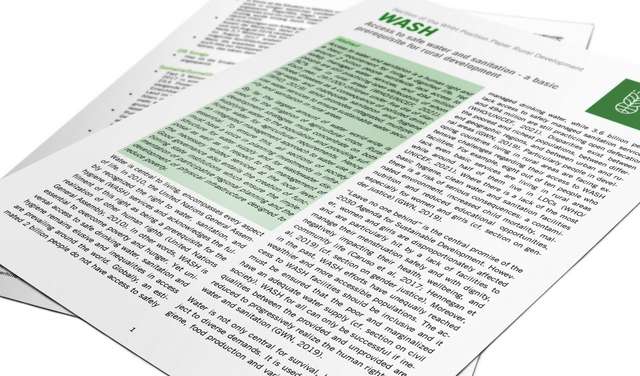
WASH

This publication is a section of the WHH position paper on rural development.
Access to water and sanitation is a human right and a basic requirement for living a dignified life. Yet around 2 billion people worldwide lack access to safely managed water services, and 494 million people are still practicing open defecation, of whom 92% live in rural areas (WHO/UNICEF, 2021). Each year, 297,000 children under five die of diarrhoeal diseases as a consequence of polluted drinking water and inadequate sanitation and hygiene (WHO, 2019). WHH promotes integrated, multiple-use water services to ensure sustainable water security and sanitation in rural areas.
By far the largest amount of water world-wide is used for the irrigation of agricultural crops. Rural development strategies must concentrate on both supplying water to the population and providing sufficient water for agricultural requirements. Hence an integrated management approach to water use is essential. To ensure this, all sections of society must have a voice in planning investments in infra-structure for water supply and for wastewater disposal as well as in respect to the management of the necessary related services at the local level. Good governance also entails the creation of functioning state institutions which ensure the implementation of participative regional planning and the development of physical infrastructure designed to reduce poverty.






